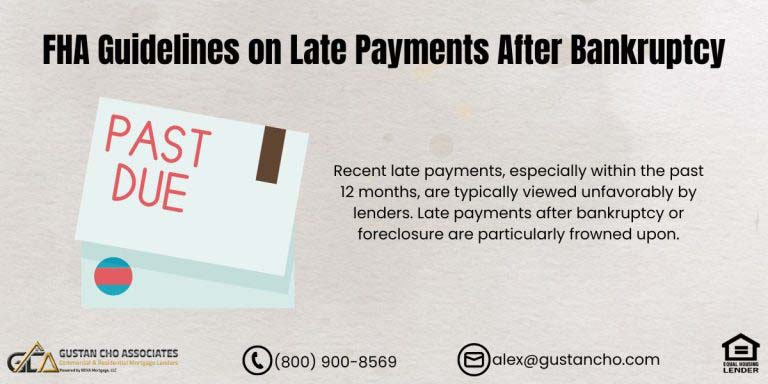This guide covers remote wage-earner mortgage guidelines on home loans. Remote Wage-Earner Mortgage Guidelines On Home Loans allow borrowers who work at home to qualify for mortgages. It is possible for wage-earners to be employed as remote location employees. This holds true even though the nearest brick and mortgage office is hundreds of miles away or in a different state. Many companies now offer remote job positions. For example, just not long ago, all mortgage underwriters and processors worked in a brick-and-mortar office location of a lender. However, as time passed, more and more mortgage processors and underwriters are working from home.
Remote Wage-Earner Mortgage Guidelines
In the past, the norm used to be to report to the office at a certain time and check out at a certain time. Many held jobs that were located close to their home The location of the employer was key in choosing where to purchase a home. However, today, employment opportunities are much different than before. More and more employers are offering remote career positions.
There is less overhead for employers to hire remote employees. For employees, the driving time, convenience, and flexibility are some of the benefits of becoming a remote employee.
A major benefit for remote employees is they are not stuck in one geographic region when buying a home. Remote Wage-Earner Mortgage Guidelines On Home Loans allow borrowers to qualify for home loans in any state they like. In this article, we will cover and discuss Remote Wage-Earner Mortgage Guidelines On Home Loans.
Primary Versus Second Home Mortgage Guidelines
There are three different types of government loans:
- FHA loans
- VA loans
- USDA loans
Government loans are for owner-occupant home loans only. Lenders offer very low mortgage rates and little to no down payment on government loans due to the government guarantee. Conventional loans offer primary, second home, and investment loans. The main reason why borrowers want owner-occupant mortgages is that the lower down payment requirements and the lower mortgage rates.
Fannie Mae and Freddie Mac Mortgage Guidelines
Fannie Mae and Freddie Mac require a 3% to 5% down payment on owner-occupant primary homes, 10% on second homes, 15% to 20% down payment on investment homes. Due to this, mortgage underwriters need to believe that owner-occupant borrowers need to be a driving distance away from their new home purchase. Per Remote Wage-Earner Mortgage Guidelines On Home Loans, this will be a non-issue with remote employees. Speak With Us for Fannie Mae and Freddie Mac Mortgage Guidelines
How Do Lenders Determine Remote Wage-Earner Mortgage Guidelines
Remote wage-earner mortgage guidelines typically refer to lenders’ criteria and requirements when considering mortgage applications from individuals who work remotely or have location-independent employment. These guidelines may vary depending on the lender and the specific circumstances of the borrower, but here are some common factors that lenders may consider:
Income Verification For Remote Wage-Earners
Lenders typically require proof of income to assess the borrower’s ability to repay the mortgage. For remote wage-earners, this may include recent pay stubs, tax returns, or other documentation demonstrating consistent income.
Employment Stability: Lenders may look for evidence of stable employment, even if it is remote. This could include a history of employment with the same company or industry and assurances from the borrower regarding the stability of their remote work arrangement.
Credit History
A strong credit history is important for all mortgage applicants, including remote wage earners. Lenders will typically review the borrower’s credit score and credit report to assess their creditworthiness.
Debt-to-Income Ratio
Lenders will calculate the borrower’s debt-to-income ratio, which compares the borrower’s monthly debt payments to their gross monthly income. A lower debt-to-income ratio indicates that the borrower has more disposable income to cover mortgage payments.
Down Payment
The down payment size can affect the mortgage terms, including the interest rate and the need for private mortgage insurance (PMI). Remote wage-earners may need to provide a larger down payment to offset perceived risks associated with their employment situation.
Residency Status
Lenders may require borrowers to provide proof of residency, including utility bills or other documents showing a stable living situation.
Property Type and Location
The property’s purchase type and location can also impact the mortgage approval process. Lenders may have specific requirements or restrictions for properties located in certain areas or for certain types of properties.
Additional Documentation
Depending on the lender’s policies and the specifics of the borrower’s situation, additional documentation or information may be required during the mortgage application process. Remote wage-earners need to be prepared to provide thorough documentation of their income and employment situation when applying for a mortgage. Working with a knowledgeable lender who understands the unique circumstances of remote work can also be beneficial in navigating the mortgage approval process.
Speak With Us About any query about your documentation
How Underwriters Determine Remote Wage-Earner Employee Status
Mortgage underwriters will verify all borrowers’ remote employment status when doing verification of employment. You cannot pull a fast one where you work in a physical brick and mortar company and just state that you are a remote employee. For example, there are certain jobs that are impossible to be remote employees. For example, police officers and firefighters cannot work from home and need to report to their respective assigned locations. Teachers and professional online instructors can be remote if they are teaching online courses.
Common Remote Jobs
Below are very popular known remote jobs that mortgage underwriters are familiar with:
- Remote mortgage underwriters and processors
- Remote loan officers
- Remote online teachers and professional instructors
- Freelance consultants
- Editors, radio personalities, professional writers and bloggers
- Financial consultants and stockbrokers
- Marketing and sales representatives
- Professional in the technology sectors such as IT, web developers, computer programmers, software developers, tech support, help desk
- e-Commerce professionals
One keynote is that mortgage underwriters will verify that remote employees are actually full-time remote positions and do not require to report to the office weekly.
Remote Wage-Earner Mortgage Guidelines: Buying Home Out Of State
Homebuyers can purchase a home in any state they want if they have remote jobs. There are many states where you can get a lot of home for the money. There are many residents in high-tax states like New York, Illinois, and California fleeing to lower-taxed states such as Florida, Texas, Tennessee, Georgia, Indiana, Mississippi, Ohio. For more information about the contents of this article and/or other mortgage-related topics, please contact us at Gustan Cho Associates at 800-900-8569 or text us for a faster response. Or email us at gcho@gustancho.com. The team at Gustan Cho Associates is available 7 days a week, evenings, weekends, and holidays.










